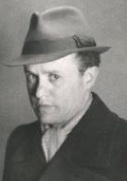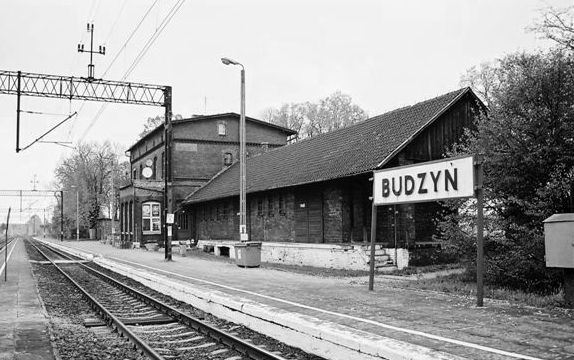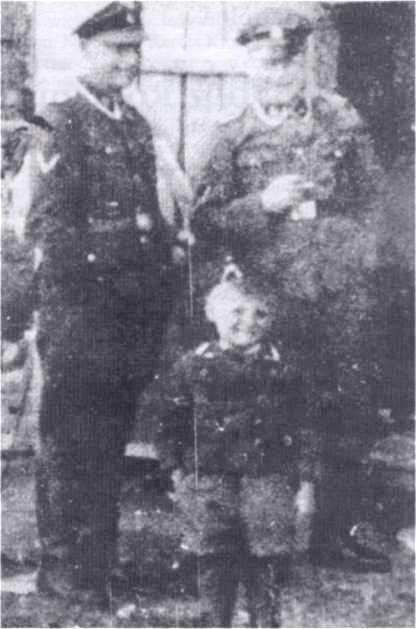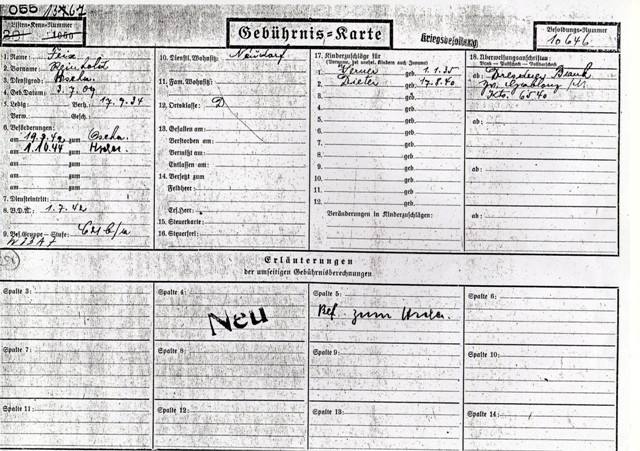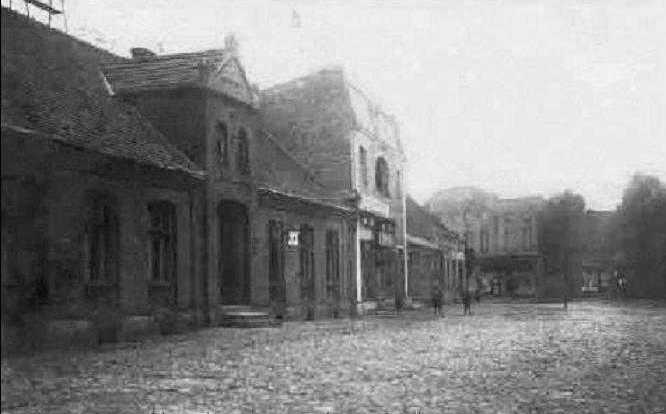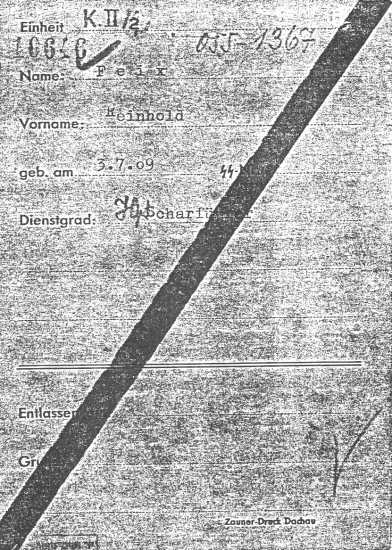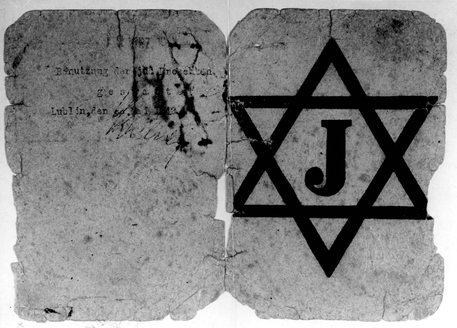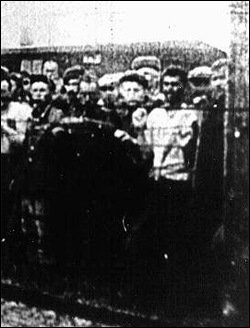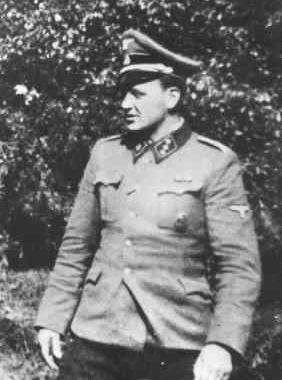Holocaust Education & Archive Research Team |
|
Survivor Stories
Holocaust Survivors Chelmno Survivors Righteous Gentiles Holocaust Recalled
| ||||||
Selected Extracts from the Memoirs of Samuel Jarniewski
A Jewish Prisoner of War SS Labour Camp Budzyn
Part 2
On the evening of Thursday the fifteenth October 1942, we entered the camp, which had been prepared for our arrival. In the camp, we were received by the Jewish leadership, which consisted of prisoners of war from Lublin that had been chosen by Hanke and transferred for this purpose.
They received us quite kindly and on their intervention, our bags were not seized. After coming to an understanding with us, two of our comrades, Kaplan and Stockman were attached to the camp leadership. Hanke announced to us that from this day on, ghettos did not exist anymore and that all able-bodied workers were to be put in camps under SS guard.
In the camp we met several hundred women from the surrounding area, many of them from the nearby towns such as Krasnik Oshendow. We also met about fifty to sixty workers from Krasnik, who had already been employed at Heinkel and were subsequently placed in Budzyn.
Here we heard of the horrors of the resettlement actions in Krasnik and other places. We also came to know of the cruel realities of what happened in the concentration camp of Maidanek near Lublin and in other extermination camps.
The managers of the Heinkel airplane works told us that we would all be employed in the airplane factory and that we would be treated well. About 5,000 prisoners would be employed in the factory and we would all live in the camp. Soon enough, several transports arrived, mostly from Krasnik Oshendow.
The living conditions were very poor, as we were put in horse stables. The beds were four storeys high and not very pleasant. Six men had to share a bed, and that wasn’t the worst. The civilian Jews received a 20-centimeter red cross on their clothing and after a few days we were separated for work.
There were two working details; one was in the factory and one was in the living settlement near the camp in which workers were housed in several living blocks. In the beginning I was employed in the settlement blocks painting rooms. We were a group of twenty men and received some respite as the work was still in the preparatory stages.
After several days the German painting Meister Jaeger called me in to paint letters. This was good work for me because it was easy and was in a warm building. After a few days, Jaeger ordered me to work with the other painters as a supervisor in order to regulate the work. He also told me that soon I would not fear him, as he also was only a man. If I made sure that all of the work was as it should be, the other painters and I would be all right. I understood at once the great trust that he had in me by giving me this job. I agreed and began to lead the detail.
Hanke had brought an SS man as an assistant and soon the both of them began to show their brutal murderous behaviour. In the first five days they shot five of our ill comrades. Hanke himself hanged a fifteen-year old lad with his own murderous hands for buying some bread and sausage from a Polish worker.
At every step, these men would display their sadism. After a few weeks, we heard that Hanke and his assistant were leaving and that an even worse Oberscharfuher was to replace him, a man for whom the life of a prisoner was of no more value than a fly’s. His assistant was to be Unterscharfuhrer Stoshek, a middle aged man who spoke quietly, but whose Browning spoke often and without declaration. He shot anybody that he fancied to.
When they both took over the camp’s leadership, all of the prisoners were ordered to the area where roll calls were taken. Stoshek shot a man with the declaration that he had money and did not want to hand it over. Anyone of us who had money, gold watches, fountain pens or any other valuables had to hand them over at once; anyone who did not comply with this order would be shot at once.
Most of the camp’s inhabitants handed over everything to him and his helpers. A few days before, I had hidden the little money, which I had saved from work. The little pocket money that I had I threw away.
The second order was to dig a 25-metre wide grave, after which they made the first selection, which cost the lives of more than 120 people, mostly old men and children. Our spirits were crushed and everyone searched for a way to save himself through escape.
The outdoor world however was very dangerous for us at this time. Through other Poles, I learned that the Polish fascist parties had made up their minds to search with all of their power for any Jews that had escaped the camp. At this time there weren’t any regular partisan groups in the area surrounding Lublin, there were only Polish National partisans. Their chief aim was to find Jews and in many cases they succeeded.
In spite of the unfavourable conditions outside of the camp, after the shooting of the 120 people, we tried to organise ourselves in secret in order to escape in large groups. All of these attempts were in vain however, because in the middle of December the Jewish commandants of the camp, who had come from Lublin, escaped with a few others in the evening after supper.
After a half an hour, the news of the escape was known throughout the camp and we worried that this would cause the shooting of the entire camp. After a short discussion with our comrade Stockman, we resolved that after two hours it must be reported to the camp commandant Feix. To avoid panic, we were ordered to go to bed at once and Stockman went to the guard and reported what had happened.
Commandant Feix ordered a hunt after the escaped prisoners, but they were never found. Feix also commanded Stockman to come to his assistance in this matter and appointed a new representative of the German leadership within the Jewish commando named Soberman.
Soberman was a man who wanted to lead in the camp’s leadership in the same way that Jews had misused power in the Judenrat of the ghettos. He received Feix’s nomination because of the fact that he had known him previously and ignored the pressures put on him by the prisoners of war to not have everything done that the murderer Feix wanted. But Soberman led a struggle against us, a struggle that caused much pain and suffering on the prisoners and cost him his life in the spring of 1943.
On the morning after the escape of the Jewish commandants, we went off to work as normal but in the course of a day learned of another dreadful occurrence that had cost the lives of seven young men.
Seven prisoners from the prisoner camp in Lublin worked for the German forces at our camp. When they learned of the escape of the Jewish commandants, they decided to escape themselves. They were unsuccessful however because they escaped in the early morning. They were not able to get very far and had to hide themselves near the working area. They were denounced by a Polish and were hunted down by a group of SS men and their Ukrainian henchmen.
The prisoners had found guns and offered resistance against the soldiers, three of them killed themselves by shooting themselves with the last of their ammunition and four were caught alive. It was here that Feix and his assistant, the Russian traitor by the name of Otto, distinguished themselves as sadists.
The four prisoners were hung by the legs at which point Feix and Otto sawed their genitals with barbed wire. The torture lasted for many hours. They screamed and begged to be shot but Feix and Otto replied that it would be a waste of ammunition.
And so they were tormented for hours until Feix and Otto became tired and a replacement was brought in. The new guards could not stand to see the suffering and shot the four martyrs. In the evening when we returned from work, we had to pass the four bodies while Feix declared that from this day on, if anyone escaped, ten would be shot regardless of the circumstances.
Conditions for us became worse day by day, Feix did with us whatever he was fond of at the time. Each day he would shoot some people with lame excuses; that one was hiding money, this one was dirty and another was ill. He often gave the order to shoot all of the very ill prisoners in the sick room.
On Sundays when most of the inhabitants of the camp were not working, he employed people in gathering wood around the camp in a sadistic routine that would cost the lives of several victims each time. Feix’s assistant Stoshek wasn’t any less dangerous than him but was a little older and quieter.
He didn’t care much for the Ukrainians either and shot several of them one day for being drunk. One day Stoshek was ordered away and in his place another assistant was brought in by the name of Mohr. He came from the police and did not cause much suffering in the beginning although he later proved that he was able to do so.
Winter came, and all of the people in the camp that were not accustomed to life in the camps and to the hygienic conditions in them were in a very bad state. This along with the meagre board that we received brought an epidemic of illnesses from which many died in the sick rooms.
Many people could not help themselves by organising a piece of bread, and anyways, it was illegal on the pain of death to organise anything. I personally had the possibility of organising things because of my work detail and did not suffer from hunger as my comrades and I had plenty to eat at work.
I also gave relief to the starving and gave them bread in order to reduce their misery. I allowed many people who worked outside to cook something in the room that I worked in, earning me many friends in the camp. I made connections with the outside world and through the help of Polish civilian workers, I was able to sell valuables that had been hidden by prisoners in exchange for Polish money which we used to buy bread and other food at high prices. We did not care about the prices and were happy to ease the suffering and save ourselves from starving.
And so the winter passed and spring came. In the spring of 1943 on Easter Day, Feix ordered all of the inhabitants of the camp to assemble at the roll call area in order to make order in the barracks. Two people who were ill could not come out and were carried out in the straw sacks that they were lying on.
One of them was burned alive with the straw sack and another was beaten to death with a stone by the block elder on the order of Feix. The block elder did not want to do this, but fearing his life, he executed the order when Feix showed him his Browning. For a long time, he could not forgive himself and could not find rest with himself after this act.
At the end of April 1943, eight hundred Jews were brought to the camp from the Warsaw ghetto rebellion. Here again, Feix displayed his murderous brutality. Soon after their arrival, he shot a man and gave the order to hand over all money, gold and valuables. After he had taken some trunks of money, he searched out the older people, among them a well-known physician from Warsaw named Pupko whom he shot.
The arrival of the Warsaw Jews changed the conditions in the camp. There were among them many prominent leaders of the ghetto revolt through whom we learnt of the sad reality of what had happened to the Polish Jews.
On their way to our camp they had passed through the infamous Treblinka death camp and the prisoner camp at Lublin. They told us of the various stages of the revolt in Warsaw and of the extermination areas that they had seen at Treblinka and other places.
They came to us tired and hungry and became even more discouraged and apathetic after the reception that Feix gave them. And so I saw for the first time something that I had not seen in my entire internment; a member of the newly arrived group killed himself. Bread and other food immediately became more expensive when the Polish workers began charging fantastic prices for the urgently needed nourishment. Very few of the Warsaw Jews had money left and they paid very high prices for bread only to recover a little from the long weeks of hunger during the revolt and from the transports.
With each passing day Feix became wilder and searched for new victims out of the newly arrived people. A search was arranged by the SS guards, the work protection men, the Work Gestapo and many civilian work Meister’s against the newly arrived people of Warsaw in order to rob them of any hidden money or other valuables.
One day, the Work Gestapo and a work protection man by the name of Winkler made a personal search of the Jews and found hidden money and other valuables on one man. They denounced him to Feix who made this case a sad spectacle for the entire camp.
He ordered all of us to enter the roll call area. The delinquent who had only had his own honestly-earned money was ordered to undress himself until he was naked. Otto tied a rope around his neck and led him close to us. We were all forced to beat him but could not bring ourselves to beat him hard, so Otto beat him with a stick so hard that he began to swoon into unconsciousness. Feix ordered cold water to be poured on the prisoner so that he could be tormented longer. This lasted several hours until he was beaten to death.
In the summer of 1943, a few Russian guards finally made up their minds not to be traitors any longer and seven of them escaped into the forest to the partisan groups. Feix became infuriated after this happened and searched out six victims from the camps inhabitants and made them stand with their hands up for more than five or six hours.
When we returned from work in the evening, everybody was ordered to the roll call area. Feix brought out the six people of whom three were comrades of ours. Feix said that these men had hidden money and had contact with the outside world. Therefore, they would be shot in public and we should watch this for in the future, anyone caught with one pfennig would be shot at once. He shot six innocent people, young people. With that, his rage against helpless people was calmed because of his fear of a struggle in the forest against partisans.
Feix murdered and did with us anything that his mind could come up. Some weeks later, he tormented and shot Louberman, our oldest representative in the camp in a beastly way.
After that, some camp inhabitants escaped from their work details. A group consisting of thirty men was brought to Feix and he began to torment everyone in it. He then ordered the thirty people to lie down on the ground with their faces down and instructed the Ukrainian guards to torment and dance on them. The torture lasted the whole evening and the entire night until the morning with the result being sixteen dead. The remaining survivors were taken to the sickroom.
Shortly after this incident, Feix was transferred to another command and in his place his assistant Mohr was installed. Mohr was not as sadistic as Feix but for every escape he shot ten men. So it was that in Mohr’s short term of office he killed about twenty to thirty men.
A short time later, the SD man Obersturmfuhrer Tauscher was selected as camp leader. A middle–aged man, Tauscher restored discipline, ordered a canteen and permitted the prisoners to have a little money. In cases of escape, however, he had no mercy and shot ten men for one. In one case, he had four brothers shot for the escape of their brother –in-law; in spite of his good temper, one could not change his orders.
Life in the camp became a little freer but the hunger and misery grew and money became scarcer. People swelling from starvation increased in numbers as time passed. A secret aid action was formed in the camp out of the Jewish commando, which provided some assistance for the starving and others who were in need.
This was very little though compared to the great misery that was in the camp. I consider it mostly the fault of the Jewish camp commando with Stockman at its head for not using its full power to provide bread to the starving. In spite of the strong guard and SS men, they had many opportunities to lessen the misery of the people in the camp and did not.
My private life in the camp at this time was not bad. I used my painting work detail where I was head worker to organise enough food so that my colleagues and other members of my work detail would not starve. I also had to thank my work Meister Jaeger who helped me a lot and obtained food for me and for those working directly with us.
I also increased my income through trade with Polish workmen of various valuables that the camps’ inhabitants had hidden. The person who helped me the most in this respect was Mr Markowsky, a Jew who worked as a free Polish workman. This secret was only known by a few of my colleagues and myself. He did a lot for us and brought us money, which we hid in the camp or buried in the ground. This enabled a lot of us not to starve, which was the most important thing.
One day, my work Meister was on furlough and travelled to Berlin. The Work Gestapo man Clement came to my workroom along with the work protection man Willy. They accused me of conducting secret trade and of having contact with the outside world.
Naturally, I did not confess to this so they wanted to search the room. I knew that if they did this I would be lost because as luck would have it, I had a lot of money hidden, even foreign currency as well as other valuables. I knew that if they were found I would be hung. I had to consider very fast what I would do.
I gave a sign to the work protection man Willy that I needed to speak to him alone. He went outside with me and after a short talk, received three thousand Polish zloty. With that, the matter was settled and I was out of peril. He fetched the Gestapo man Clement and everything was fine.
After this, another event occurred that could have cost me my life and the life of another workman. In my group there was a painter and his name was Stshalka. He painted various pictures and sold them to the civilian workers for bread and other food.
The man was more than sixty years old and simply wanted to earn the necessities without doing anything extraordinary. One day he painted a picture that showed a Jewish prisoner with the red cross of shame on his back working very hard.
When he brought the picture into the workroom, I ordered him as the head worker to cut it out and destroy it at once, because I knew exactly what danger this picture was for him. He did not listen to me and hid it in the workroom.
One day, the room was searched by a Yugoslavian Volksdeutscher, who asked him after dinner who he was selling the pictures to. When he went with him to the workroom, I saw at once the danger that was coming and in order to save him, I took the picture and quickly painted colour on top of it.
The Yugoslavian Volksdeutscher saw me destroying the picture, took it away from me and began to beat me. He then brought me to the work protection manager who I knew very well. He left the decision to my work Meister Jaeger who naturally decided in my favour. In this way Stshalka and I were saved. This and other similar events happened to my comrades and me very often; I had the luck of succeeding in settling everything.
Summer went on until its end and the lack of success of the German troops on the Eastern front became more apparent in the camp. Retreating troops from the Eastern front were stationed in the camp plant and many of them as well as the work Meister’s, saw that there was no chance of victory. In spite of all of this, we awaited our fate with great fear.
Towards the end of August, the camp commandant ordered that al of the older prisoners would remain in the camp so that he could see if they were able to work or not. He brought about four hundred older men together and ordered them to take their clothes off.
With vicious beatings, he dove all of the despondent people to the trains standing in the vicinity and loaded them into the cars. They were transported to Lublin into the concentration camp Maidanek.
This act had a great impression on us because of the fact that Tauscher had had a little respect for us with his mild discipline until that time. There was also a German Jew in the camp that was from the same place as Tauscher who had known him as a solid man. In this terrible case however, we saw what a German officer was capable of doing and what a sadist he was.
With the trek back of the retreating German forces came the evacuation of camps that had been built in the east. Some transports of these Jews were brought to our camp; one from Hrubieszow and the second from the Minsk ghetto.
They all told us of the truth of the extermination of our people and in spite of our evacuation, were not sure that they were among the living. They had seen the burning of prisoners along with their camps on their retreat from the east.
They also brought us good news of the defeat of the armies in the east and of the fact that many of our brothers had joined the partisans and were inflicting great damage and losses to the German military. We didn’t lose hope and thought to ourselves that maybe we would have a chance to save ourselves.
Near the camp of Budzyn at the site of the plant, the construction of barracks began. The first barracks to be built were occupied by the Polish workers as well as various military troops. It was well known that what was being built was an extermination camp as SS men from Lublin visited numerous times during its construction.
The buildings had to be built by the construction managers and several of the work Meister’s told us the real aim of the building, which brought us many sad thoughts as we knew exactly what extermination camp meant. To change our fate however was not in our power.
Money in the camp became scarcer and the Polish civilian workers began charging even higher prices for bread and other food so that in some cases, the prices were 100 Polish zloty for one loaf of bread. I spoke of this to the Manager Mr Stephan, whom I knew very well and who was a good man.
He always had some understanding of our sufferings and together, we considered what to do in order to lower the price of bread. After some consideration, he promised to give me permission to buy four to five hundred kilos of bread every day in the nearby town of Krasnik.
We were able to take a horse-drawn wagon with a trustworthy person who would bring the bread to work where it would be counted and distributed, one pound per person at a normal price.
I organised this matter and collected the money from each work detail group. In this way I was able to lower the price of bread so that no one went hungry in this period. It was very dangerous for me, but the manager and work Meister promised to help me, and this arrangement lasted for about three months during which time nobody went hungry in the camp.
Tauscher was gone and with him all of his Ukrainian guards. In their place was the SS-Sturmfuhrer Franz with all of his guardsmen from the extermination camp of Treblinka. They had come directly after the revolt in Treblinka and naturally, did not tell us anything of it.
News of the successful revolt had reached us at the time of their coming anyway. Different guesses were made as to the reason of the new camps’ leadership and we came to the conclusion that we were being transferred into the new camp being built where we would be under the same rules and conditions of the concentration camp in Lublin. We were very afraid of this, but surviving up till now was a feat in itself and we concentrated our efforts on surviving this coming autumn, which brought many sad experiences and victims.
In the first days of November in Lublin, Poniatowo, Trawniki and some other small Jewish camps were liquidated by shooting the masses of prisoners. Even the Jewish prisoner of war camp in Lublin was liquidated in this way.
Some 60,000 prisoners were shot in a few days. The horrible news of these massacres reached us and we all decided that this sad fate was unavoidable for us. Also spoken of, was the fact that the German destruction command was present at our work and wanted to destroy us. I cannot be sure, but in those days I think we were guarded stronger than before, and it was quite a while until we could rest easy and not stand in fear of our lives.
The camp commandant Franz was a severe man and was strict with all of the prisoners including the Jewish camp elder and the block elders, but did not show any particular sadism in the first months.
The construction of the new barracks was in full swing and we could already see that we would soon be brought there but could not tell when that would be. Time didn’t stand still and went along, and so autumn passed and the new year of 1944 came.
Many troops who had retreated from the fronts were stationed at our work. Many of us were employed with the military units and heard of the reality of the war at the fronts. I also obtained a newspaper for myself every day and with a great curiosity and satisfaction, I saw that we still had a chance to survive because the war was coming to an end faster and faster.
The SS did not think of the bad luck at the fronts. They had their Jews and ruled their own little world however they wanted. The new camp was now ready and we were quite sure that we would be brought to this concentration camp.
On the evening of the sixth of February 1944, concentration camp clothing was brought to the camp. The atmosphere in the camp became very excited, and at six o’clock in the evening the guards began to shoot. We were ordered at once to shut the blocks down.
About forty men were killed in the ensuing fire, the majority of those who were in the camp at the time. Outside the barracks, the camp commandant Franz searched everywhere and then entered the barracks and shot four or five people whom he suspected of trying to escape.
In that way Franz ended his term as camp commandant, for on the seventh of February, an SS man came from Lublin- Maidanek, took over the camp and brought us into the newly-built concentration camp of Budzyn.
Source:
Holocaust Historical Society USHMM Yad Vashem
Copyright. Victor Smart H.E.A.R.T 2012
|
